On one of the early days of my two week trip to Oman, I found myself looking out over the old town area of Muscat, the capital of the country.
We had climbed 50 or so steps to the top of an ancient fort to observe the sunset, capturing images of this beautiful moment. Yes, I was on a photography tour so taking pictures was the goal. (Jim Cline Photo Tour)
As I looked to the west to the sun setting, I observed low boxy white structures—homes and businesses. Nope, they weren’t particularly picturesque, not like a quaint village in Europe. But I liked the whiteness and the simplicity and enjoyed the sun setting behind them.
But later as I review my images from that hour we spent on the hill top it occurred to me that much of what we saw foreshadowed what I would see on this trip. Elements of Oman if you will.
Architecture
First, architecture. New. low and white. Oman was a powerful country in the 1600s and on when it was a leader in ports and ship building. When transportation moved to land…..the country became a much more tribal civilization.
Then in the 1970s oil was discovered and it all changed. Cities and highways and infrastructure emerged. The Sultan, however, opted for a conservative approach, low buildings and not a lot of razzle dazzle like some of the Middle Eastern countries.
If I turned and looked to the right of the sun set, I could see a beautiful mosque. As we traveled around the country, sights of the Domes and Minarets became frequent and common place. They seemed to be located about every 3-4 miles in any residential area and stood out because the rest of the buildings were all so low.
Think about church steeples in Europe. It’s the same thing. I think it communicates the importance of religion in the culture. I grew to love the haunting sounds of the call to prayer.
Attire: People in White and Black. As a former fashion writer and retail buyer I can’t help but be hyper aware of what people wear. In Oman, the dress for locals includes a white Dishdasha for men (ankle length white robe with long sleeves) with either a small embroidered cap or very distinctive stye wrapped turban. Women were covered in black Burka’s, often embellished with sequins and embroidery.
In general they don’t like being photographed (as opposed to people in India who loved it when we asked for a photo) so we either had to shoot from very far away with little emphasis on the face or hire models. The men seemed more comfortable with photography.
Waterfront: a big part of Oman and its history.
When I turned away from the sunset, I could see the waterfront. This is a great symbol of Oman and its history as an important trading post by sea.
What could we see here of interest? A small wooden Dhow—name for wooden boats used for fishing and cargo, now sometimes tourists. The Sultan’s yachts and a cruise ship.
The Sultan, who died shortly before we arrived, had a 50 year reign and was really well liked. When I asked people about him, the responses were always positive. His successor was picked and in office within several hours of his death. The transition apparently smooth.
We often saw photos of him plastered on walls.
I could also see the Fish Market—every town had one —we had great fun photographing the fish and the fish sellers through out our trip.
And lastly a modern road was in view. The roads were extremely high quality in Oman. Modern. Smooth. Well marked. It is a country that seems to have used its wealth wisely. My guess is you’d have to live there to know, but as an outsider there for a brief period, it certainly seems that way.
I imagine I will be doing separate blogs on all or most of these subjects. Stay tuned for more scenes from Oman, Dubai and Abu Dhabi.
If you enjoy DesignDestinations.org and would like to get a regular update when there’s a new post, fill in your email in the Subscribe box on the right. Follow the prompts. We don’t use or share your email address. Scouts honor.
Typically we post every Monday. Come back and enjoy seeing the world with us. My guest bloggers and I do this purely for the fun and pleasure of sharing our experiences with you. We hope you enjoy.

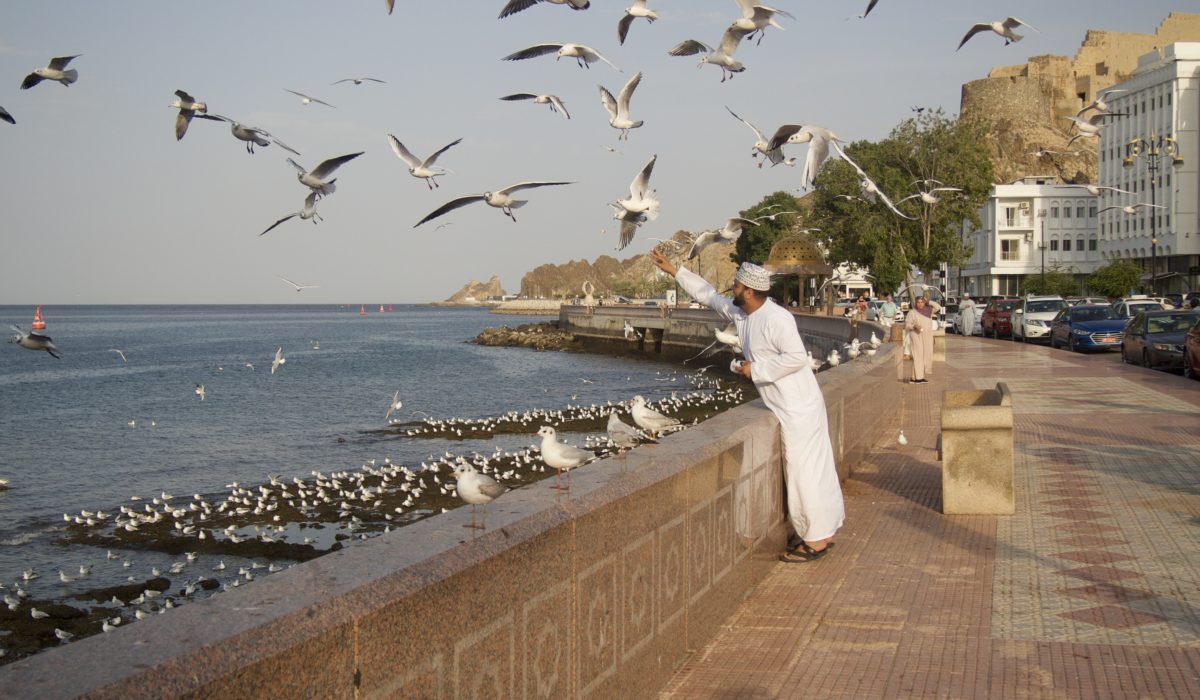















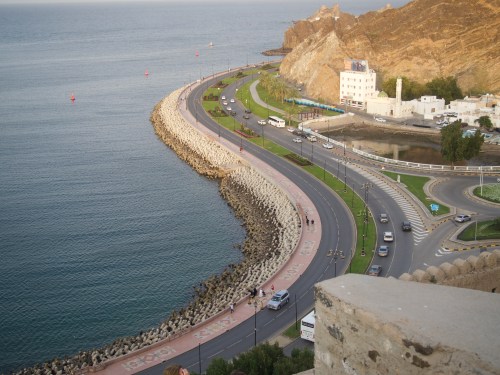

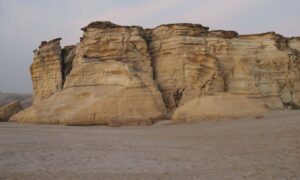
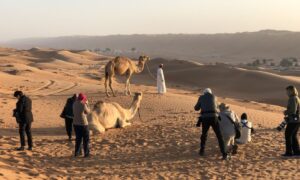
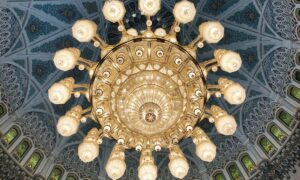
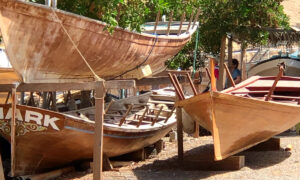
Comments
9 CommentsMargaret
Apr 27, 2020Thank you for not only your lovely photographs, but also, since I know so little about Oman, sharing your impressions is a helfpul introduction.
Susan J. Smith
Apr 27, 2020I’m so glad you enjoyed. I thoroughly enjoyed exploring Oman and learning about life in the Middle East.
Mary Lockrow
Apr 27, 2020beautiful! Love the simple white against the mosques!
Susan J. Smith
Apr 27, 2020Lots of white there. Makes sense because it gets so hot. We were there during their winter and it was pretty warm. In the 80s most days.
Christopher P. Baker
Apr 27, 2020Hi Susan… Thanks for this lovely presentation of a country and culture I’ve grown to love. it was fabulous having you participate as part of this Jim Cline Photo Tour. I greatly enjoyed your company! I look forward to reading your future comments on Oman, and hopefully to guiding some of your readers on one of of my future photography tours to the ‘Sultanate of Oman + Dubai.’ Warm regards, Christopher (www.christopherpbaker.com/calendar-of-tours)
Susan J. Smith
Apr 27, 2020Thanks, Chris. I will be doing more posts about the experience. Thanks for your nice comment.
Don't miss Abu Dhabi when you go to the Middle East. | DesignDestinations
Jun 1, 2020[…] For an earlier blog post about the Oman/Dubai Photo tour, click here. […]
A brief visit in Musandam, Oman | DesignDestinations
Jun 29, 2020[…] And here’s a link to another blog post about Oman. […]
Photographing the Goat Market in Nizwa, Oman | DesignDestinations
Aug 3, 2020[…] was the weekly goat market in the ancient city of Nizwa in Oman. I was on a Photography Tour , organized by the Jim Cline Photo Tours during Feb. 2020, just before the world shut […]